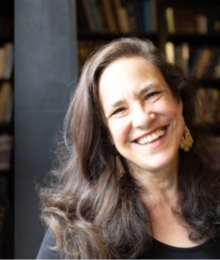S. Film, Media, and Law
Course Information
- Course Number
- L9293
- Curriculum Level
- Upperclass
- Areas of Study
- Interdisciplinary Legal Studies, Legal History and Law and Philosophy
- Type
- Seminar
- Additional Attributes
- New Course, Tutorial Seminar
Section 001 Information
Instructor
 Julie Stone Peters
H. Gordon Garbedian Professor of English and Comparative Literature
Julie Stone Peters
H. Gordon Garbedian Professor of English and Comparative Literature
Section Description
This offering meets 2 hours per week, but is worth 3 points of credit. The additional point of credit reflects the instructor's certification that the course assignments require student engagement and responsibilities beyond that found in a two hour lecture course. LLMs: only two of the three course credits will count toward the 24 credit minimum for the NY Bar.
This course starts with three premises. Law plays a significant role in shaping the expressive media that represent our world to us. Those media in turn shape law and our experience of it, effectively forming us as legal subjects. But law and media may also act as conflicting domains of judgment, —spaces for the enactment of alternative visions of truth, authority, and justice. The course approaches questions of the relationship between these domains from the perspective of the humanities and social theory. This is not a class in which you will learn entertainment law, media regulation, or intellectual property as fields of legal practice. It is for those who wish to think historically, critically, and theoretically about film, media, and law.
As a workshop, the course has two aims: to explore new work on film, media, and law in conversation with scholars who are at the cutting edge of the field; and to collectively develop our own work in this vein. The guest scholars who will share their recent work with us represent the field’s diversity and richness. Their scholarship emerges from a variety of disciplines: anthropology, art and architecture, history, literature, music, philosophy, political theory, religion, theatre and performance, and (of course) film and media studies and law. What they share is a commitment to thinking about how law and media reflect, inflect, or challenge each other. The class will also serve as a workshop for developing student projects and professional skills with an eye to conference participation, thesis development, and possible publication. The last session will be dedicated to a mini-conference / workshop / celebratory finale in which students present their projects. Enrollment is limited, but graduate students in any field and at any stage of study are welcome (as auditors or for credit), along with any other members of the scholarly community interested in attending.
Interested students should email Professor Peters
- School Year & Semester
- Spring 2025
- Location
- WJWH 417
- Schedule
-
Class meets on
- Monday
- Points
- 3
- Method of Evaluation
- Paper
- J.D Writing Credit?
- Minor (automatic)
- Major (only upon consultation)
Learning Outcomes
- Primary
-
- At the end of the course, students will have acquired understanding of and/or facility in jurisprudential considerations in legal analysis
- At the end of the course, students will have acquired understanding of and/or facility in the historical development of law and legal institutions
- At the end of the course, students will have acquired understanding of and/or facility in use of other disciplines in the analysis of legal problems and institutions, e.g., philosophy; economics,other social sciences; and cultural studies
- At the end of the course, students will have acquired understanding of and/or facility in collaboration and/or teamwork
Course Limitations
- Instructor Pre-requisites
- None
- Instructor Co-Requisites
- None
- Requires Permission
- Yes
- Recommended Courses
- Strong humanities background recommended
- Other Limitations
- Registration requires instructor approval